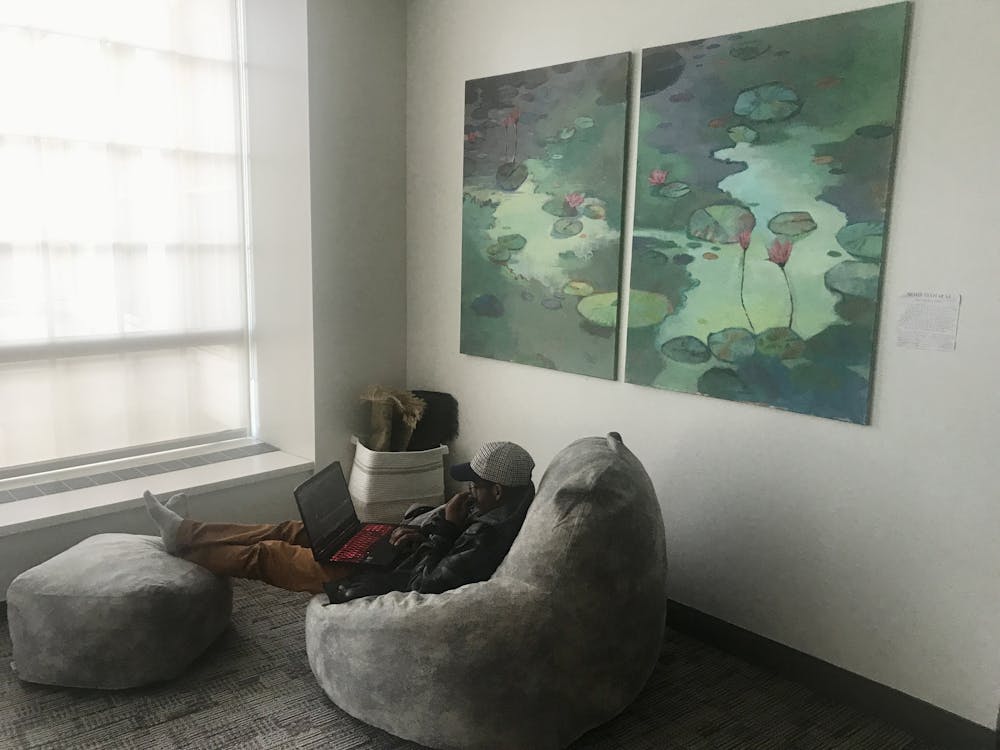For the past three weeks, Hafsa El Harchi has faced the same dilemma around 8 p.m.: should she continue to do her homework and study for her exams, or go to the mosque and pray with her family?
While finishing her work tempts her, she usually picks the latter, knowing she won’t return home until about 10:30 p.m. Then, she’ll have to finish her homework, fitting in enough sleep to successfully wake up early the next morning.
This has been El Harchi’s, and many other Muslims’, routine since March 10, which marked the start of the Islamic holiday of Ramadan. Ramadan is observed as a month of fasting from dawn to dusk and emphasizes the importance of community and family. The month ends with a celebration of the Islamic holiday, Eid al-Fitr.
“It’s an act of worship and showing your faith,” El Harchi said, “and it’s something that may not necessarily be easy, but you figure out how to do it because you believe in it enough to know that it’s for your own good.”
Children are not encouraged to start fasting until after puberty, but El Harchi remembers visiting the mosque at a young age to participate in the prayers, hoping to get a spot next to her friends. When the junior biomedical engineering major came to Miami University, she quickly had to learn how to balance her religion with school. Ramadan follows the lunar calendar, meaning the date changes each year.
“The one thing that I will say I’ve struggled with, especially these past two years with Ramadan being during midterms and the busiest season of the semester, it becomes hard to participate in all the after-sundown activities,” El Harchi said.
Layla Ndiaye, a junior media and communication and neuroscience double major, has also found it difficult to finish her school work and get enough sleep before waking up to eat before sunrise.
“I think as college goes on, it kind of gets a little bit more difficult because I’m studying so much, but then I have to wake up and eat because I won’t be able to during the day,” Ndiaye said.
Ndiaye, who has grown up in the Islamic religion, said there have been times when she’s had to skip a meal to get a few extra hours of sleep or had an exam rescheduled so she could adequately prepare for it. Beyond navigating the balance between academics and their religion, both Ndiaye and El Harchi found the resources Miami offers helpful.
During Ramadan, the dining halls offer to-go boxes for Muslim students to enjoy their meals after sundown, and the Ford Meditation and Reflection Room in the Armstrong Student Center provides a space for Muslim students to pray every night. The room was also recently updated to include wash stations, benches, prayer mats and bean bag chairs.
“I mean even just renovating the prayer room is a big thing, so I know that Miami is doing the best they can,” Onur Tektas, a sophomore information & cybersecurity management major at Miami, said.
Like Ndiaye and El Harchi, Tektas appreciates the accommodations Miami provides and values off-campus resources. Tektas is the co-director of the Oxford Interfaith Center, which spreads awareness of underrepresented religions. For Ramadan, the center held a potluck iftar, the traditional meal that breaks the daily fast.
Enjoy what you're reading?
Signup for our newsletter
“I know that Miami wouldn’t necessarily hold an iftar so it just makes the students feel more welcome and feel like they are seen,” Tektas, who grew up in the Islamic religion, said.
Zafer Ozdemir, a professor in Miami’s Department of Information Systems and Analytics, spoke at the potluck iftar about the importance of fasting during Ramadan and the value of community during the holy month.
“[When] you don’t eat, drink, that’s what people think of first as fasting,” Ozdemir said. “Well, ideally, you expand that fast to other faculties.”
Ozdemir said during Ramadan, Muslims practice fasting of the tongue, which means abstaining from speaking anything that’s not true; fasting of the eyes, which means not looking at anything that is not permissible; and fasting of the ears, which means not listening to anything that isn’t the Quran or something of wisdom.
“It should extend to the rest of the year too, that way of thinking, but of course, fasting is specific to Ramadan,” he said.
Ozdemir grew up in a secular household and didn’t embrace the Islamic faith until he was in college. He said he has not faced any challenges fasting while teaching beyond the expected dry throat, but understands the busyness Muslim students experience during the academic year in the holy month. El Harchi hopes that more professors will learn more about Ramadan and its importance for Muslims so they can be more understanding.
“Most of us chose to go to [Miami] knowing that we’re not going to find as big of a [Muslim] community,” El Harchi said. “But it doesn’t hurt to know that something’s going on.”




